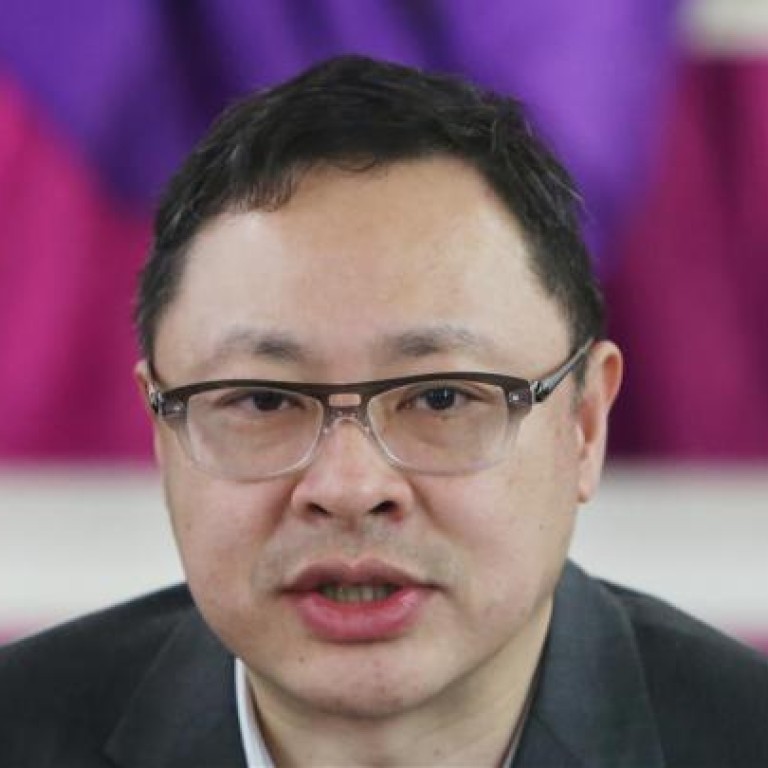
Focus on the 2017 nomination committee, academic Benny Tai says
Benny Tai says it is more important to discuss nominating committee's formation than how candidates for chief executive will be picked
The academic behind a plan to block traffic in Central in the fight for democracy is seeking to move the debate on universal suffrage beyond the issue of screening candidates.
The city should focus on discussing how to form the nominating committee in the 2017 popular vote for chief executive, instead of speculating on whether pro-democracy candidates would be screened out, Dr Benny Tai Yiu-ting said.
"Very often, the [debate] on screening has focused on democratic procedures rather than the nomination committee," the University of Hong Kong associate law professor said on Commercial Radio yesterday.
"But if the formation of the committee meets [international] standards of being universal and equal, the nomination process [and democratic procedures] will be comparatively much less contentious. So I believe our focus should be on the nomination committee."
The city has yet to have such a committee. In last year's race won by Leung Chun-ying, 1,193 members of the Election Committee nominated and elected their pick for chief executive.
Tai suggested the nominating panel be returned by a popular vote, instead of being formed in the same way as the Election Committee, which is made up mainly of Beijing loyalists with a mandate of 249,499 voters.
Last month, Qiao Xiaoyang, chairman of the National People's Congress Law Committee, suggested that the next chief executive must not be a person who would oppose the central government. He cited article 45 of the Basic Law, which calls for a "broadly representative" nomination committee to put up chief executive candidates for universal suffrage "according to democratic procedures".
His comments sparked fears of a mechanism that would bar pan-democrats from the poll.
During the ensuing debate, Democratic Party founding chairman Martin Lee Chu-ming proposed admitting at least five people to the 2017 race, with at least one pan-democrat among them. He retracted the idea after it drew a frosty response from other pan-democrats, who said the proposal implied the use of a screening mechanism to accept nominations.
Fanny Law Fan Chiu-fun, an executive councillor and a local deputy to the NPC, said it was good for Tai to raise other issues for discussion because Beijing had "never suggested" there would be a screening or primary.
Joseph Cheng Yu-shek, convenor of the Alliance for True Democracy - a coalition of all 27 pan-democratic lawmakers - said it was important to discuss the chief executive election as a whole, because the different parts were "closely linked".
Tai is spearheading the Occupy Central movement, which seeks to mobilise at least 10,000 people to block traffic in a "non-violent" way in Central in July next year if the government does not deliver an acceptable proposal for the city's chief executive vote in 2017.

